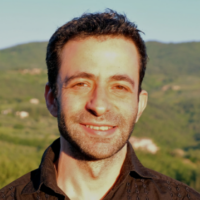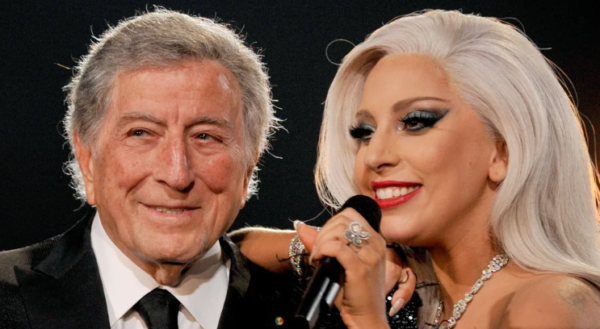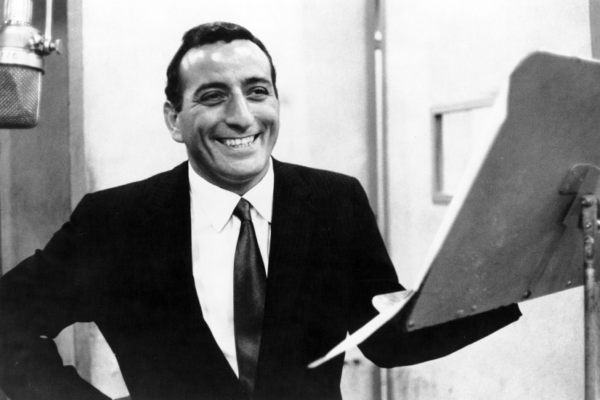Remembering Tony Bennett
Jonathan Wingate recalls his interview with the late singing legend

By Jonathan Wingate
July 31 2023
He has been at the top of his game for over 60 years, yet at the age of 88, Tony Bennett shows no signs of slowing down: “I am still honing my craft, so if I can stay healthy, the whole game is to try and prove that I can get better as I get older,” he tells Jonathan Wingate. “Now that is what I call a sharp suit,” says Tony Bennett with a warm smile and a firm handshake. It’s quite a compliment, coming from the connoisseur of cool himself, who today is sporting a charcoal grey Doug Heyward number and a pair of shoes you can see your reflection in. Bennett may be the epitome of style, but his presence goes totally unnoticed amid the power-lunching businessmen and designer-clad tourists in the bar of the Dorchester Hotel. “It’s such a pleasure to see you again, Mr. Bennett,” beams the maître-d’, who really does look thrilled to see him.
We examine the menu – full of complex sounding dishes – and both opt for tuna steak with salad. “What can I get you to drink?” Tony Bennett thinks for a moment. “What is that pink drink that I like?” he asks, vaguely. It may be three years since he last stayed here, but moments later, the maître-d’ reappears with a bottle of his favourite Italian rose. “That really is very good,” he smiles as he takes a taste. It’s a far cry from Bennett’s Depression-era childhood in a cramped apartment above a sweet shop in Astoria, Queens. He attended the High School of Industrial Arts in Manhattan, where he nurtured the two passions that would remain with him throughout his life – painting and singing. His father - Giovanni (John) Benedetto – was a grocer by trade, although he passed away when Bennett was 10 years old, forcing his mother to become a seamstress to support the family.

“My father died when I was very young, and my mother had to raise three children during the Depression,” Bennett recalls. “It was very tough. My mother had to work for a penny a dress just to put food on the table for us. I remember her coming home with bleeding fingers. I loved her so much. In fact, I really wanted to become an entertainer so that I could buy her a home and stop her from working, and I was able to do that in her lifetime. My family encouraged us so much, and they admired my painting and my singing. It gave me the passion to just sing and paint for the rest of my life. “My father came from Campania, a little town called Pagani. He used to stand on top of the mountain and the whole valley would hear him sing, and that’s why my brother and I decided to become singers.
My brother ended up in the Metropolitan Opera. He was much more talented than I was. They called him ‘The Little Caruso’. He didn’t continue singing, but I just had this passion to entertain people.” At one point, Bennett was considering giving up his dreams of a becoming a singer so that he could pursue painting full-time, but one of his teachers convinced him to persevere with music: “I can remember my teacher telling me to continue to sing and paint,” he explains. “Actually, it was many years later that the great Duke Ellington said to me - ‘You should do two things instead of one and then you’ll never get burnt out.’ That legitimised my decision to sing and paint. Those are my two passions in life. I have two paintings in the Smithsonian Institute, and I am sold out everywhere in the world wherever I sing, so it’s gratifying to know that it’s all paid off. Duke Ellington was a genius, and getting that from him…boy, that was great advice. “I was always drawn to Ellington’s music. He was in touch with creating things more than any man I have ever met. He created every day.
The two best bands I ever worked with were Basie and Ellington. In my own philosophy, Basie symbolizes the earth, and Ellington is the sky, because of that mystic thing about him. His music is like the wind itself.” As a teenager, he sang while waiting tables in New York and subsequently performed with military bands throughout his overseas Army duty during World War II: “When I came out of the war, I joined the American Theatre Wing School,” Bennett remembers. “That’s where I was taught how to hold on to my voice by doing the scales of the Bel canto technique, which at 88 makes me sing just as well as I did when I was 50.” How did he find his own style as a singer? “I was talking to the great Miriam Spier on 52nd Street – the great jazz street – and she said: ‘Don’t imitate other singers, just listen to jazz musicians and find out how they’re phrasing.’ I liked Art Tatum’s piano playing, and Stan Getz had a great wide honeyed sound on the saxophone, so I tried to put those two together. By studying them, I developed my own style.” His big break came in 1949 when Bob Hope discovered him singing with Pearl Bailey in Greenwich Village, a moment that would immediately change the course of his life:
“After the show he came back to see me in my dressing room and said: ‘Come on, kid, you’re going to come to the Paramount to sing with me’. He also told me he didn’t care for my stage name – Joe Bari. I told him my real name is Anthony Benedetto, and he just said, ‘We’ll call you Tony Bennett.’ So that’s how it happened…the start of a glorious adventure that has continued for more than 60 years.”
In 1950, Mitch Miller – Columbia Records’ A&R director – heard Bennett’s demo recording of Boulevard of Broken Dreams and promptly signed him up. He topped the charts in 1951 with his debut single, Because of You, and went on to enjoy a run of Number Ones including Cold Cold Heart, Rags to Riches and Stranger in Paradise. Despite the fact that Bennett and Sinatra were clearly in a class of their own, by the end of the 50s, Bennett’s career was on the slide as rock and roll took hold. “Everyone thought they were finished, and that’s what’s so tragic about it. I just regret that when rock and roll came along, it seemed to make all the sharpest schooled musicians and the truly great singers redundant overnight. It should really be the other way around. Everything should be top quality, and everybody should just shoot for the best. The best clothes, the best music, the best food, the best spirituality – the best everything. Always do something with quality.”
Does he agree with Frank Sinatra’s appraisal of rock and roll as “that foul-smelling aphrodisiac”? “Well, it still is exactly that,” he chuckles. “I was in the Stage Delicatessen on Times Square talking to the wonderful singer, Jimmy Durante, who was having chicken soup. I said – Mr. Durante. What do you think of rock and roll? And he said: ‘They play three chords, and two of them are wrong.’” His refusal to compromise his music soured his relationship with his record label, who considered Bennett a spent commercial force by the end of the 60s: “When the record companies saw just how much money they were making, the business took over from the music and it stopped becoming art. “You have to understand that Columbia Records were actually forcing me not to sing jazz,” Bennett continues, warming to his subject. “They didn’t think that people would buy it. The public – thank God for them – they don’t care about musical genres. I am a jazz singer, and jazz is something that I love because it’s completely honest. I remember one time Count Basie said to me: ‘Why change an apple?’ That was a good lesson. You don’t have to change if you’re doing something good.” After four long years without a hit record, Bennett’s pianist, Ralph Sharon, played him an achingly beautiful ballad by two unknown writers – George Cory and Douglass Cross. I Left My Heart in San Francisco had long been forgotten about by Sharon and was rediscovered sitting in the back of a drawer. Although it only just managed to scrape into the charts when it was released in 1962, it went on to become Bennett’s signature song. “At the end of the song, it goes – ‘When I come home to you, San Francisco / Your golden sun will shine for me,’” he sings. “There is something about that song that gives everybody encouragement to believe that if you stay with it, it will come good for you in the end. I suppose that sums up my attitude to life.

“As time goes on, the songs become more meaningful, and they actually become more autobiographical. You gravitate to songs that explain experiences that you’ve had in your life, and then you sing them with much more clarity.” Tony Bennett was always a man out of time in so many different ways. Most of his favourite songwriters were at the height of their considerable powers long before he ever picked up a microphone. Yet somehow Bennett’s voice was so ineffably moving that he always managed to transcend the times and passing trends. “The Great American Songbook was written in the 20s, 30s and 40s – way before my time – and that’s when everything was optimistic, even though they were living in tough times,” Bennett explains. “There was Irving Berlin, Cole Porter, Gershwin, Jerome Kern, Harold Arlen, Duke Ellington and all the great lyric writers like Ira Gershwin and Johnny Mercer. The songs never dated. They were all about quality. They get better each time you listen to them, and I never get tired of singing them either. “It’s like at the turn of the century in France you had Ravel and Debussy, and in art you had all the Impressionists… Monet, Gauguin, Pissarro and Van Gogh. Even though there’s modern art now and everything seems to be abstract, when you look at a Monet painting, you have to say: My God, just look at how beautiful that is. It’s the same with music. It was a renaissance period in the United States that created the best popular songs that were ever written, and it will never happen again.” In a 1965 Life magazine interview, Sinatra said: “For my money, Tony Bennett is the best singer in the business. He excites me when I watch him. He moves me. He’s the singer who gets across what the composer has in mind, and probably a little more.” What was Sinatra like? “He stayed on top all the time,” he replies. “He would stay up until four in the morning and have parties with all of his cronies around him. Right up to the day he died, he stayed the same way. He just wanted to get near a piano and sing songs. Sinatra absolutely loved life, and he was a beautiful friend to me. When Sinatra said I was the best singer he had ever heard, he changed my whole career.” Although many people probably think of him as a crooner, what makes Bennett truly unique is the fact that, whatever material he works with, he has always been a jazz singer at heart:
“I am a jazz singer, and I’m not bragging when I say that” he agrees. “I love jazz, because it’s so honest and I’m moved by it. I even paint in a jazz fashion. It’s all about spontaneity and first instincts. There’s definitely a correlation between the way I paint and the way I sing. There is line, form, colour, balance… learning what to leave out. It takes years to learn how to just simplify it. You can’t overdo it. “As a jazz singer, what happens is that you sing spontaneously, and each time you sing a song, you try and get deeper and sing with more feeling, learning what to leave out and what to put in. It’s very important to really feel the songs.” He has won 17 Grammys and recorded over 100 albums, the latest of which, Cheek to Cheek, is a collaboration with Lady Gaga, a bold move that may raise a few eyebrows in certain circles. Bennett is having none of it. “I’m telling you right now, Lady Gaga is as great as Ella Fitzgerald. I’ve performed with everyone from Lena Horne to Sinatra, and you see what they’re doing and what their game is, but when I saw Lady Gaga, I immediately thought that there’s nobody quite like her. She is very talented, and she did it all the right way. I try to tell young artists who are interested in fame that it’s short-lived if you’re not doing everything with quality.” He may be 88, but Tony Bennett’s effervescent enthusiasm for the things that he loves has remained resolutely undimmed by the passage of time. He barely pauses for breath as he reflects on an illustrious career that began almost 65 years ago. After two hours, I notice that he has hardly even touched his tuna steak. He’s been far too busy talking. “My philosophy is this – If something is good, then it’s good, and that’s all there is to it. Why changes an apple? It all goes right back to that,” Tony Bennett beams as we say our goodbyes.
“People say I’m getting better as time goes on, and that’s why I don’t really feel like retiring. I’m in top shape now. If I keep my health, I can get better, because I can just keep learning. I am still honing my craft, so if I can stay healthy, the whole game is to try and prove that I can get better as I get older. Life is a gift, and we’re blessed to be on earth. We are all born, we live and then we die, but the trip is such an adventure that we should just cherish every moment that we’re alive. It’s a wonderful adventure, it really is.”
